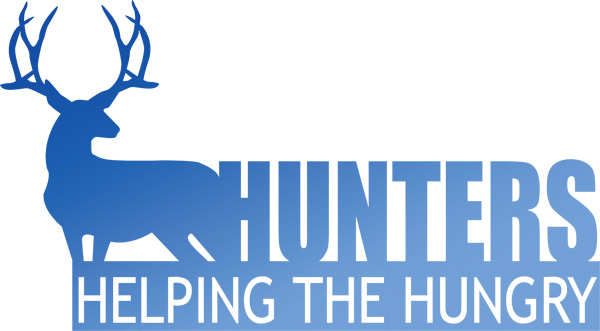Fall is a time of year when many people begin to think about charity . . . and hunting.
Now, the two can be combined to benefit those in need.
The New Mexico Hunters Helping the Hungry program started by the Roadrunner Food Bank of New Mexico, with support from the New Mexico Department of Game and Fish, will provide an opportunity for hunters to show their generosity.
In September, the program began accepting donations of deer and elk meat that has been properly cared for in the field prior to being delivered to a participating processor.
Those wishing to donate have no financial obligation with the meat processor, but can pay the fees if they wish. Donations from a variety of sources, including individuals and organizations, will pay the processing fee. To get the program off the ground, Game and Fish, along with the New Mexico northern and southern chapters of Safari Club International, provided some initial funding.
Prior to getting the program off the ground, Julie Anderson, the food rescue manager for Roadrunner Food Bank, needed to have the funds to pay processors and the infrastructure needed to be in place, including picking up, care and storage of the meat.
After three years of planning and overcoming obstacles, the food bank is accepting meat donations of legally harvested deer and elk.
“There were a number of roadblocks to over-come,” Anderson said. “There was a need to get all the processors willing to participate certified by the New Mexico Environment Department and we had to line up enough donations to know there would be a sustainable program.
“Of course there are concerns when it comes to proteins, like meats, that had to be examined. Historically we do not receive a lot of dairy and protein donations. This program will provide additional protein, which will be a huge benefit.”
Anderson said there are several certified processors participating in New Mexico and the food bank will look to possibly increase participating processors in the future.
Those wishing to help have a financial incentive.
“We can certainly take personal donations,” Anderson said. “Those donating to the processing fund will get a receipt and that donation can be used as a tax deduction.”
The generosity of receiving financial donations fulfills only part of the needs to maintain the program. Anderson is convinced hunters are going to fulfill the rest.
“Having the money to cover the processing fees means little if we don’t receive meat donations,” Anderson said. “Hunters can donate part or all of an animal. I believe there will be a lot of interest in helping.”
Those donating deer or elk meat can ask the processor for a receipt. It is up to the hunter to estimate the value of the donation, similar to the system used when donating items to Goodwill.
Despite the program entering its first year, Bob Osborn, assistant chief of private land programs for Game and Fish, believes the food bank will receive donations.
“I think it’s a great opportunity for hunters to help the needy and homeless,” Osborn said. “I believe we’ll see strong participation.”
Osborn said Game and Fish personnel have spoken with the New Mexico Council of Outfitters and Guides to make sure word about the program reaches the masses. In addition, a brochure explaining the program will soon be readily available and information is available on the Roadrunner Food Bank website rrfb.org/hunters.
The website also offers an option to donate funds to support the program.
Those considering a donation of deer or elk meat will need to answer five yes-or-no questions after harvesting an animal regarding the apparent health of the animal, proper care of the meat and that it was protected from contamination.
This form is in the brochure and on the food bank’s website, rrfb.org/hunters.
“All donations go into an account dedicated to paying the meat processors,” Osborn said.
“Those funds can’t be used for anything else. Donations of both money and meat will ultimately drive this program into the future.”
For more information, contact Anderson at (505) 349-8933 or email Julie@rrfb.org.
About Roadrunner Food Bank
Roadrunner Food Bank, a Feeding America member, is the largest nonprofit dedicated to solving hunger in New Mexico, helping 70,000 hungry people every week through a statewide hunger-relief network.
The vision of founder Rev. Titus Scholl, the Roadrunner Food Bank of New Mexico has been serving New Mexico’s hungry since 1980.
Thirty-five years later, the food bank serves as a distribution hub and provides food to hundreds of affiliated partners around the state, including food pantries, soup kitchens, shelters and region-al food banks. Roadrunner also distributes food through its own specialized programs helping children, families and seniors.
In addition to being a part of a statewide net-work of hunger-relief organizations, the food bank is also the local member of Feeding America, a national hunger organization with 200 food bank members across the nation. Being part of a national network of 200 food banks brings best practices, funding and secures food donations from national food companies bring-ing food sources to the people in New Mexico.
 New Mexico Wildlife magazine Conserving New Mexico's Wildlife for Future Generations
New Mexico Wildlife magazine Conserving New Mexico's Wildlife for Future Generations
